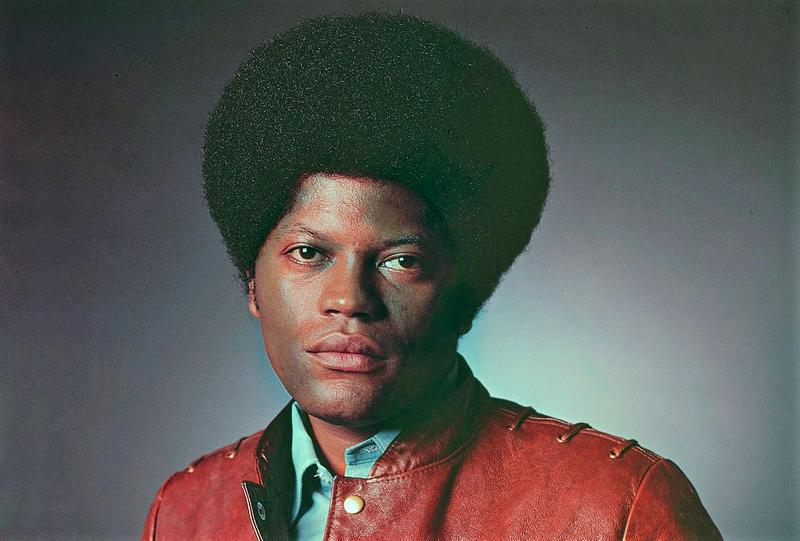Clarence Williams III and His Barrier-Breaking “Mod Squad” Role
By | March 25, 2022

In the late 1960s, executive producer Aaron Spelling had a TV hit with The Mod Squad, a show that seemed to encapsulate the societal changes going on at the time. The show was significant in many ways. It tackled some of the key issues of the day, including student protests, police brutality, soldiers with PTSD, domestic violence, and the anti-war movement, and it did so with three young, cool, hip actors in the starring roles. The show appealed to the young counterculture generation who, until this time, couldn’t identify with any television characters. Most significantly, it featured an African American character as an equal to the show’s white characters. Let’s look at this character, Linc Hayes, and the actor who portrayed him, Clarence Williams III, to see how this Mod Squad member broke racial stereotypes and laid the foundation for black TV characters to come.

The Mod Squad Premise
If you think about it, The Mod Squad had an ingenious formula for success. The premise of the show was that a police captain realized that his team of cops was too old and cop-like to work undercover. He recruits three young juvenile delinquents and offers them a deal. If they worked as detectives for him, they could avoid jail time. The three delinquents were Pete, played by Michael Cole, the son of rich Beverly Hill parents, Julie Barnes, played by Peggy Lipton, a hippie flower child, and Linc Hayes, played by Clarence Williams III, an angry black man who was arrested at the Watts riots. The trio could go undercover in places the cops could not, like schools, biker bars, and hippie hangouts. The show appealed to a younger audience who identified with the lead characters, but also to the older generation who liked to see justice being served and young people making amends for past mistakes.

Linc Hayes
Clarence Williams III’s character in The Mod Squad, Lincoln Hayes, was a complex character that represented many of the young African American men in the late sixties. He was a serious and angry young man who was fed up with the injustices and inequalities all around him, but he was also proud, confident, and cool. With his afro hair and sunglasses, he was one cool cat. He spoke the language of the day, using phrases like “keep the faith” and “solid”. Linc was relatable and inspiring. What was most impressive was that he was treated as an equal member of the trio, something that didn’t happen often in 1960s TV shows.

Clarence Williams III
A native-New Yorker, Clarence Williams III was born into a family of performers. After a stint as a paratrooper in the military, Williams took to the Broadway stage, appearing in a number of plays, including The Long Dream, Doubletalk, and Slow Dance on the Killing Ground, for which he earned a Tony Award nomination. In 1966, he was an artist-in-resident at Brandeis University. His first major television role was in The Mod Squad, which debuted in 1968 and ran until 1973. Of the three main characters on The Mod Squad, Williams was the most experienced actor. Cole and Lipton were relative newcomers.

Breaking Barriers
The Mod Squad, like Star Trek, Mission: Impossible, Room 222, and Mannix, was unique and groundbreaking in that it did not cast the African American character in a subservient role. Too many TV shows of the past only included black characters if they were shown as maids or butlers, or in overly stereotyped and offensive roles. Just as Lieutenant Uhura on Star Trek was an equal and valued member of the crew, so Linc Hayes on The Mod Squad was an important and equal member of the trio of undercover detectives.

An Interracial Kiss
Star Trek was groundbreaking in showing the first interracial kiss on television during an episode in 1968 in which Captain Kirk and Lieutenant Uhura kiss. Shortly afterward, The Mod Squad aired an episode in which Williams’s character, Linc, gave Lipton’s character, Julie, a friendly kiss. This was still new and uncharted territory for television at the time. When the studio heard that The Mod Squad was filming an interracial kiss, they asked Aaron Spelling to cut it from the script. He refused. After much back-and-forth with the studio, Spelling finally won out, but he was warned that he would be inundated with thousands of complaint letters. Spelling added that he only received positive feedback from the scene.

Life After The Mod Squad
Clarence Williams III had a successful acting career long after The Mod Squad ended its run. On the big screen, he appeared in I’m Gonna Git You Sucka, Half-Baked, Reindeer Games, and American Gangster. He starred as Prince’s father in Purple Rain in 1984. On TV, he was in Twin Peaks, Hill Street Blues, Miami Vice, Everyone Hates Chris, and Law & Order, to name a few. Just last year, Clarence Williams III lost his battle with colon cancer. He leaves behind a legacy of being one of the early pioneers for favorable African American representation in television.
